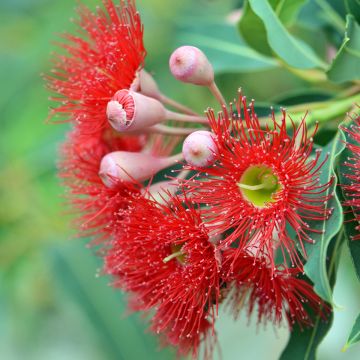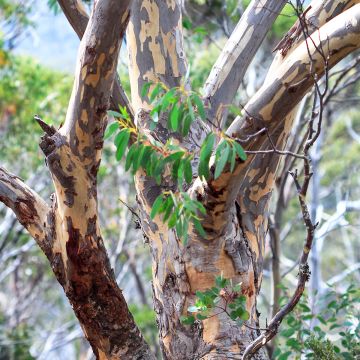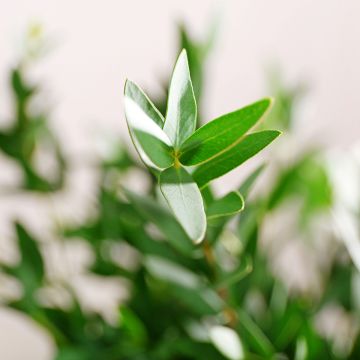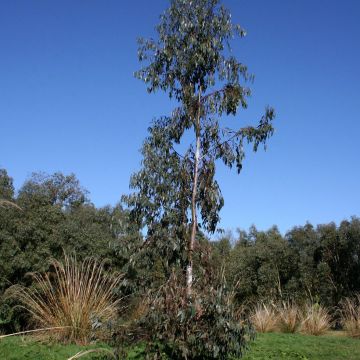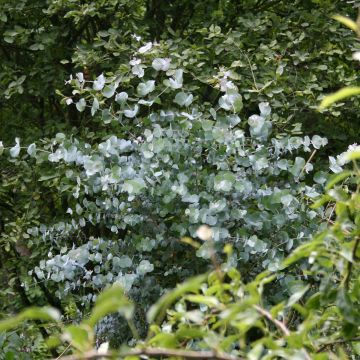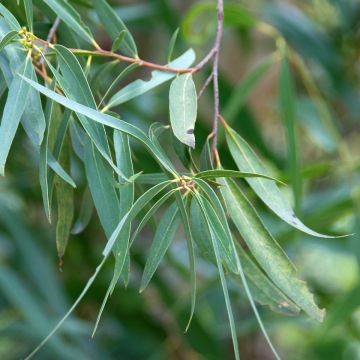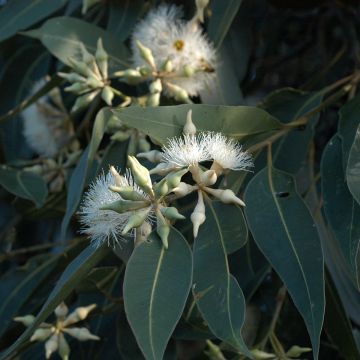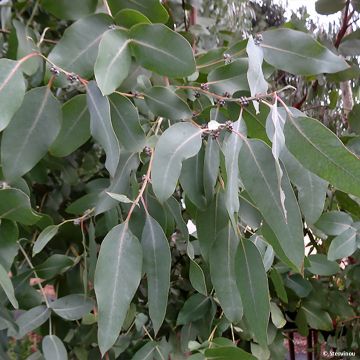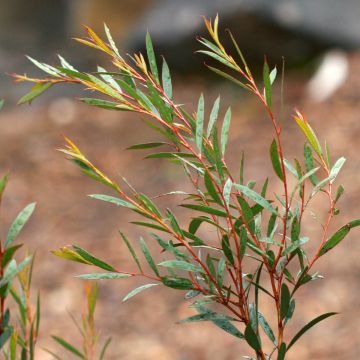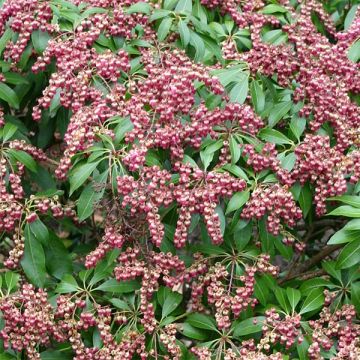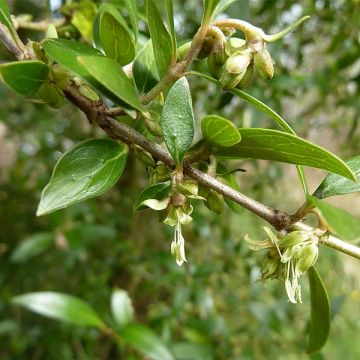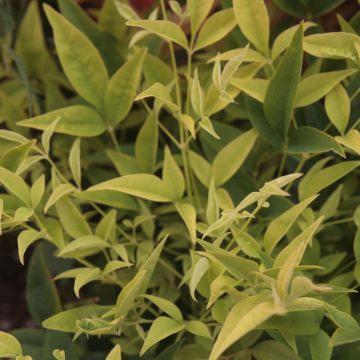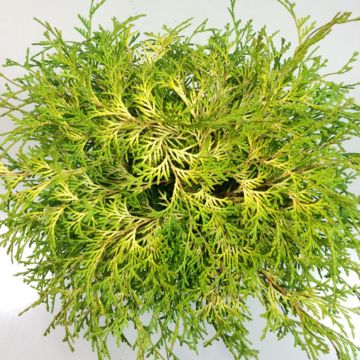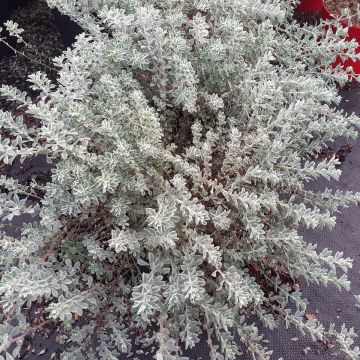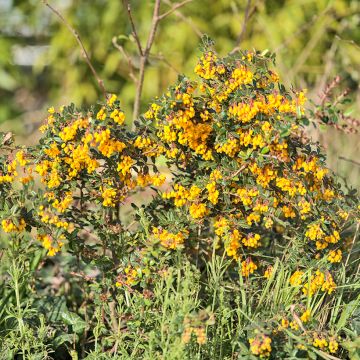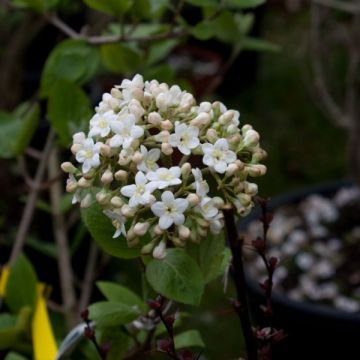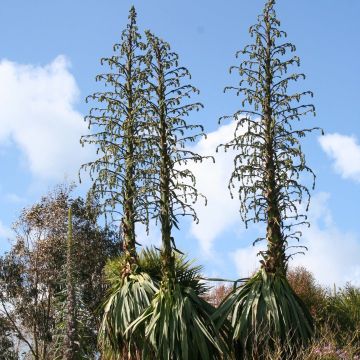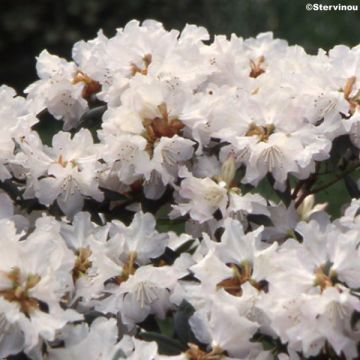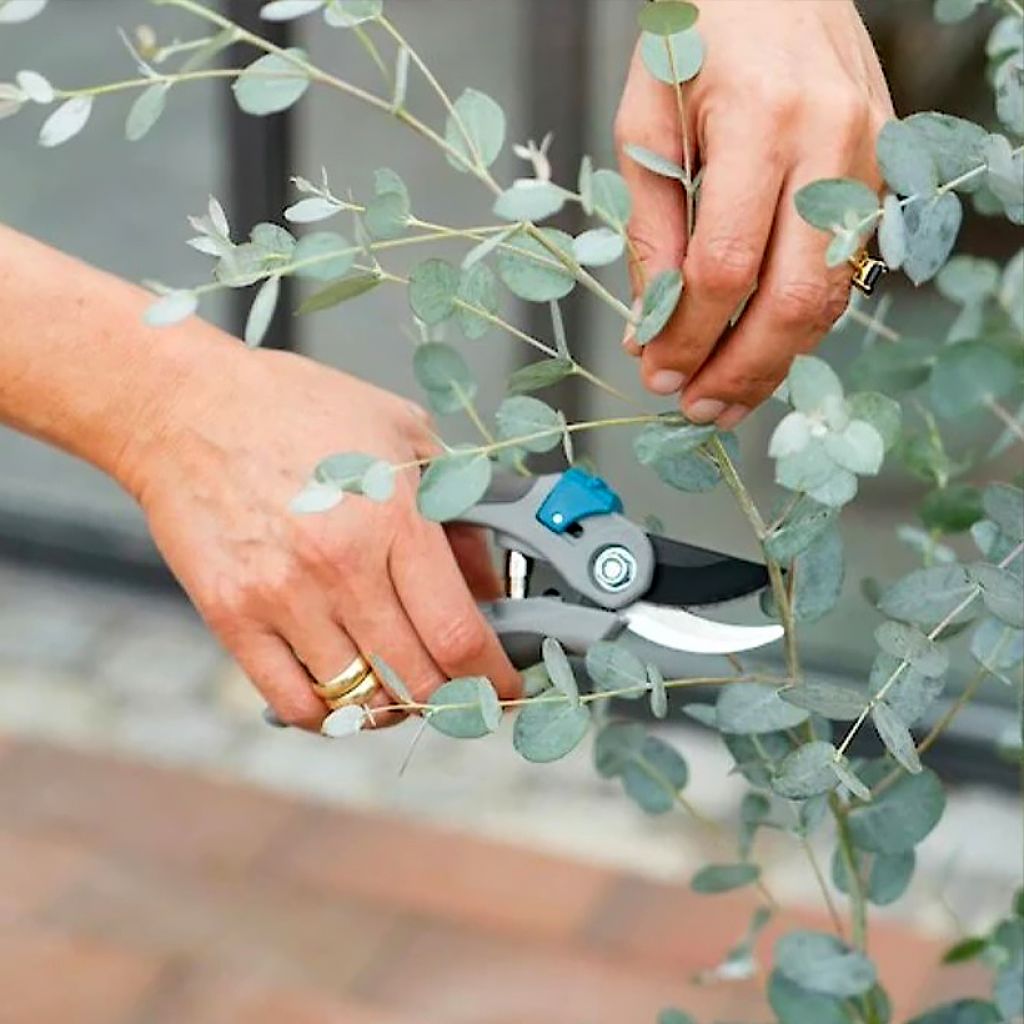

Eucalyptus gunnii Blaue Liebe
Eucalyptus gunnii Blaue Liebe
Eucalyptus gunnii Blaue Liebe
Cider Gum
Lovely bush, very satisfied with my purchase, it's a real visual pleasure.
Nath44, 15/09/2024
This item cannot be shipped to the selected country
Delivery charge from €5.90
Oversize package delivery charge from €6.90
More information
Schedule delivery date,
and select date in basket
This plant carries a 24 months recovery warranty
More information
We guarantee the quality of our plants for a full growing cycle, and will replace at our expense any plant that fails to recover under normal climatic and planting conditions.
From €5.90 for pickup delivery and €6.90 for home delivery
Express home delivery from €8.90.
Oversize package: home delivery by special carrier from €6.90 per order..
Express home delivery from €8.90.

Does this plant fit my garden?
Set up your Plantfit profile →
Description
Eucalyptus gunnii 'Blau Liebe' is a selection of cider gum interesting for its magnificent silver-blue metallic foliage, moderate growth, and cold resistance. This allows it to be planted in many gardens, but also to adorn a large container on the terrace. If regularly pruned short, this eucalyptus will form a decorative large blue-grey silver bush throughout the year. It adds a beautiful touch of exoticism to the garden or terrace, and its fresh or dried leaves are sublime in floral arrangements. Easy to maintain, it adapts to all well-drained soils, not too chalky and not too dry. However, it requires full sun to give its best.
The 'Blau Liebe' eucalyptus, selected in Germany, is a small tree from the myrtle family. It descends from the Eucalyptus gunni, a giant tree native to the mountainous regions of Tasmania. With moderate growth, this very dense selection has a naturally bushy habit. At the age of 10, this small tree will reach about 1.80m (5 ft 11 in) in height and 1.50m (4 ft 11 in) in width if not pruned. Pruned every year in spring, it will be wider, extremely dense, but shorter. Like its ancestor, 'Blau Liebe' has evergreen foliage, pleasantly aromatic when crushed. Its foliage is a pronounced silver-blue-grey, carried by green branches when young. The juvenile foliage consists of rounded or heart-shaped leaves, while the adult leaves are elongated lance-shaped. The significant flowering takes place in June-July. It is made up of fragrant flowers in the form of tiny cream-white pompoms, visited by pollinating insects. The hardiness of this variety is estimated at -15°C (5 °F) for the crown, in open ground. If the branches freeze in winter, simply cut them back to the ground in early spring, and new growth will emerge from the stump.
Eucalyptus gunnii Blau Liebe works well in predominantly white or silver scenes. It brings an elegant and luminous touch to the garden when planted as a hedge with other shrubs, in groups, or as a solitary plant. For example, combine it with purple foliage (Sambucus Black Lace, Cotinus Royal Purple), or golden foliage (Catalpa bignonioides Aurea, Golden Honey Locust). On the balcony or terrace, its lightness and the brilliance of its foliage will bring a very modern touch. Easy to maintain and very hardy, it is also quite drought-tolerant. Finally, it is an elegant plant at all stages of its growth, both as a young plant and as an adult. Its frost resistance allows it to be cultivated in many regions.
Report an error about the product description
Eucalyptus gunnii Blaue Liebe in pictures
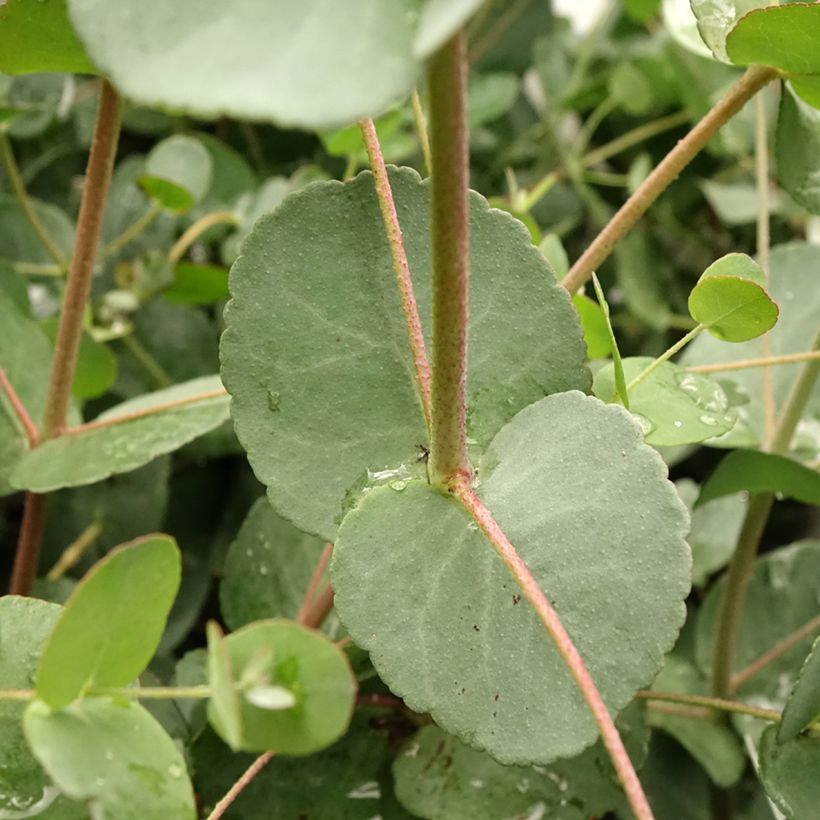

Plant habit
Flowering
Foliage
Botanical data
Eucalyptus
gunnii
Blaue Liebe
Myrtaceae
Cider Gum
Cultivar or hybrid
Other Eucalyptus
Planting and care
Eucalyptus gunnii Blau Liebe is best planted in early spring, in well-drained soil, not too chalky and in a sunny location, but sheltered from strong, cold winds. Water regularly to help your eucalyptus settle, beyond the first summers if it is very dry. Pruning is not necessary, but it is perfectly tolerated in spring, and useful if the branches have frozen. Watering and fertilization is optional once the bush is well established. In March, you can cut it down to the ground to form a beautiful, bushy plant. It grows well in pots, which must be large enough and filled with a light and rich substrate. Watering should be kept on top of.
Planting period
Intended location
Care
-
, onOrder confirmed
Reply from on Promesse de fleurs
Evergreen shrubs
Haven't found what you were looking for?
Hardiness is the lowest winter temperature a plant can endure without suffering serious damage or even dying. However, hardiness is affected by location (a sheltered area, such as a patio), protection (winter cover) and soil type (hardiness is improved by well-drained soil).

Photo Sharing Terms & Conditions
In order to encourage gardeners to interact and share their experiences, Promesse de fleurs offers various media enabling content to be uploaded onto its Site - in particular via the ‘Photo sharing’ module.
The User agrees to refrain from:
- Posting any content that is illegal, prejudicial, insulting, racist, inciteful to hatred, revisionist, contrary to public decency, that infringes on privacy or on the privacy rights of third parties, in particular the publicity rights of persons and goods, intellectual property rights, or the right to privacy.
- Submitting content on behalf of a third party;
- Impersonate the identity of a third party and/or publish any personal information about a third party;
In general, the User undertakes to refrain from any unethical behaviour.
All Content (in particular text, comments, files, images, photos, videos, creative works, etc.), which may be subject to property or intellectual property rights, image or other private rights, shall remain the property of the User, subject to the limited rights granted by the terms of the licence granted by Promesse de fleurs as stated below. Users are at liberty to publish or not to publish such Content on the Site, notably via the ‘Photo Sharing’ facility, and accept that this Content shall be made public and freely accessible, notably on the Internet.
Users further acknowledge, undertake to have ,and guarantee that they hold all necessary rights and permissions to publish such material on the Site, in particular with regard to the legislation in force pertaining to any privacy, property, intellectual property, image, or contractual rights, or rights of any other nature. By publishing such Content on the Site, Users acknowledge accepting full liability as publishers of the Content within the meaning of the law, and grant Promesse de fleurs, free of charge, an inclusive, worldwide licence for the said Content for the entire duration of its publication, including all reproduction, representation, up/downloading, displaying, performing, transmission, and storage rights.
Users also grant permission for their name to be linked to the Content and accept that this link may not always be made available.
By engaging in posting material, Users consent to their Content becoming automatically accessible on the Internet, in particular on other sites and/or blogs and/or web pages of the Promesse de fleurs site, including in particular social pages and the Promesse de fleurs catalogue.
Users may secure the removal of entrusted content free of charge by issuing a simple request via our contact form.
The flowering period indicated on our website applies to countries and regions located in USDA zone 8 (France, the United Kingdom, Ireland, the Netherlands, etc.)
It will vary according to where you live:
- In zones 9 to 10 (Italy, Spain, Greece, etc.), flowering will occur about 2 to 4 weeks earlier.
- In zones 6 to 7 (Germany, Poland, Slovenia, and lower mountainous regions), flowering will be delayed by 2 to 3 weeks.
- In zone 5 (Central Europe, Scandinavia), blooming will be delayed by 3 to 5 weeks.
In temperate climates, pruning of spring-flowering shrubs (forsythia, spireas, etc.) should be done just after flowering.
Pruning of summer-flowering shrubs (Indian Lilac, Perovskia, etc.) can be done in winter or spring.
In cold regions as well as with frost-sensitive plants, avoid pruning too early when severe frosts may still occur.
The planting period indicated on our website applies to countries and regions located in USDA zone 8 (France, United Kingdom, Ireland, Netherlands).
It will vary according to where you live:
- In Mediterranean zones (Marseille, Madrid, Milan, etc.), autumn and winter are the best planting periods.
- In continental zones (Strasbourg, Munich, Vienna, etc.), delay planting by 2 to 3 weeks in spring and bring it forward by 2 to 4 weeks in autumn.
- In mountainous regions (the Alps, Pyrenees, Carpathians, etc.), it is best to plant in late spring (May-June) or late summer (August-September).
The harvesting period indicated on our website applies to countries and regions in USDA zone 8 (France, England, Ireland, the Netherlands).
In colder areas (Scandinavia, Poland, Austria...) fruit and vegetable harvests are likely to be delayed by 3-4 weeks.
In warmer areas (Italy, Spain, Greece, etc.), harvesting will probably take place earlier, depending on weather conditions.
The sowing periods indicated on our website apply to countries and regions within USDA Zone 8 (France, UK, Ireland, Netherlands).
In colder areas (Scandinavia, Poland, Austria...), delay any outdoor sowing by 3-4 weeks, or sow under glass.
In warmer climes (Italy, Spain, Greece, etc.), bring outdoor sowing forward by a few weeks.

































